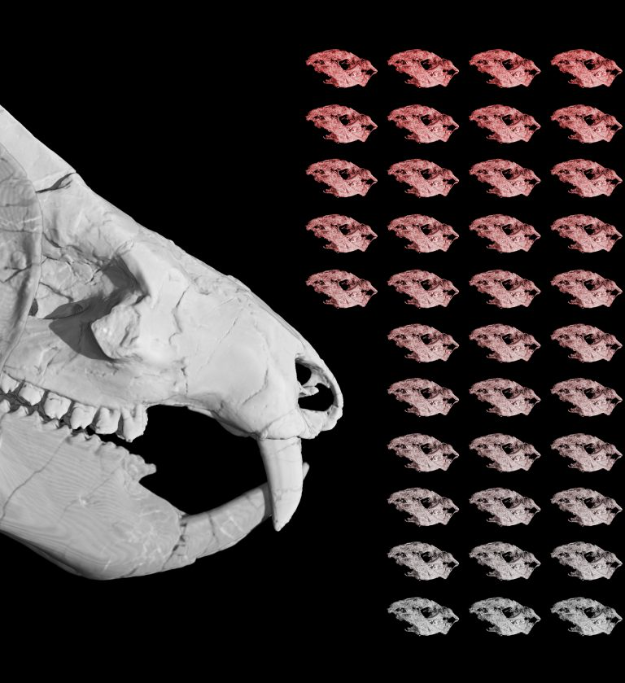Compared with the rest of the animal kingdom, mammals have the biggest brains and produce some of the smallest litters of offspring. A newly described fossil of an extinct mammal relative -- and her 38 babies -- is among the best evidence that a key development in the evolution of mammals was trading brood power for brain power. The find is among the rarest of the rare because it contains the only known fossils of babies from any mammal precursor, said researchers from The University of Texas at Austin who discovered and studied the fossilized family. But the presence of so many babies -- more than twice the average litter size of any living mammal -- revealed that it reproduced in a manner akin to reptiles. Researchers think the babies were probably developing inside eggs or had just recently hatched when they died.  Researchers from The University of Texas at Austin found a fossil of an extinct mammal relative with a clutch of 38 babies that were near miniatures of their mother. Credit: Eva Hoffman / The University of Texas at Austin |


